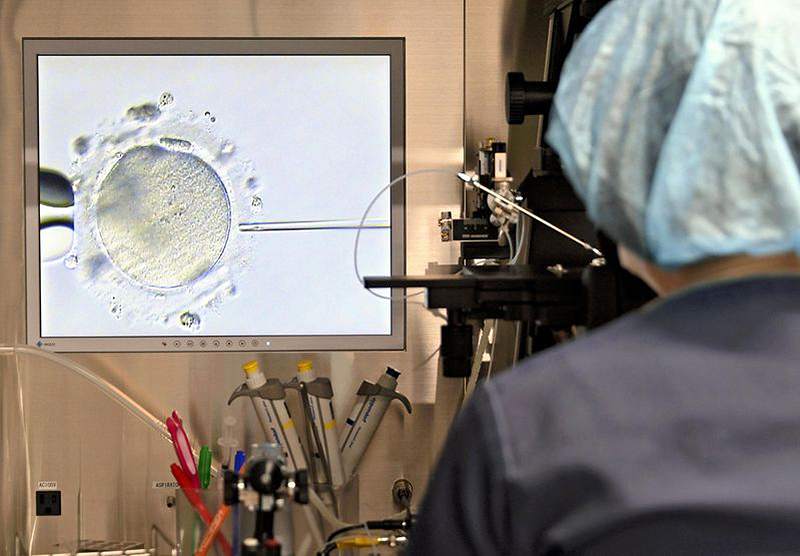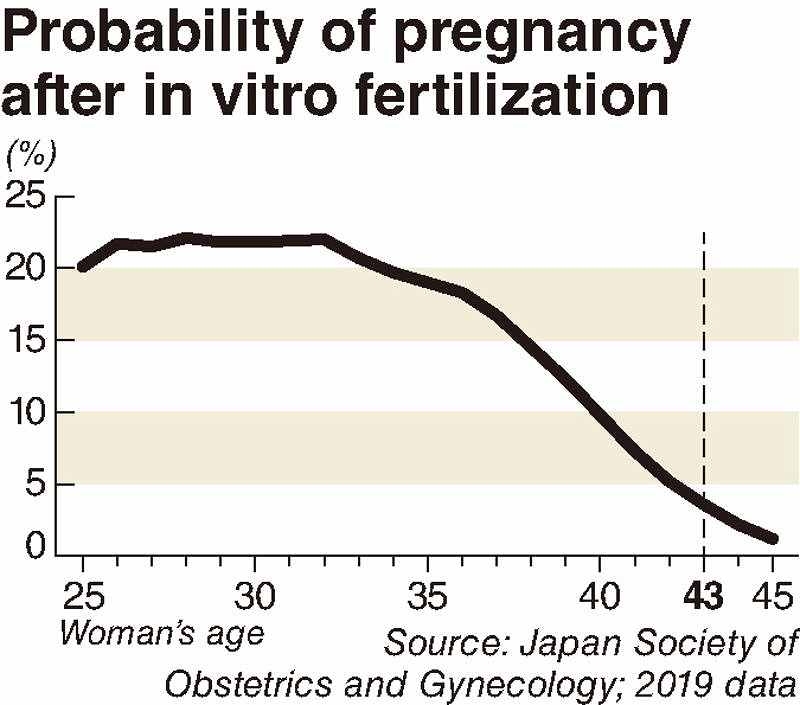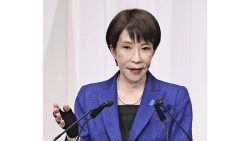
A fertility procedure is performed in Shibuya Ward, Tokyo, in September 2020.
December 14, 2021
The government is considering making 43 the age limit for women who receive fertility treatment under public health insurance from April next year, The Yomiuri Shimbun has learned.
The Health, Labor and Welfare Ministry plans to propose the age limit at a meeting of the Central Social Insurance Medical Council on Wednesday, according to sources.
No age limit will be proposed for men.
Legally married couples and common-law partners would be eligible under the ministry’s proposal.
Women younger than 40 at the start of the treatment would be able to have up to six cycles of treatment per child, while women aged 40-42 at the start of the treatment would be able to have up to three rounds, based on the fact that the probability of a successful treatment decreases with a woman’s age.
The specific examinations and treatments that will be covered by health insurance — such as in vitro fertilization and artificial insemination — will be decided based on the guidelines of the Japan Society for Reproductive Medicine.
Regarding preimplantation genetic screening, which examines all the chromosomes of embryos created through in vitro fertilization, the ministry will address the issue separately based on discussions of related medical societies.
The ministry intends to exclude from the health insurance coverage treatment such as improved technologies for achieving pregnancy via eggs or sperms donated by third parties, because of ongoing Diet debates regarding the right to know in artificial insemination treatment involving donors.

The ministry is considering setting standards for medical institutions that offer fertility treatment under the health insurance system. Medical fees for specific fertility treatments will be decided at the Central Social Insurance Medical Council as early as the beginning of next year.
Health insurance coverage for fertility treatment is one of the government’s key measures against the nation’s declining birth rate.
The government wants a system in place at the start of fiscal 2022.
According to the World Health Organization, infertility is diagnosed if couples fail to get pregnant after at least 12 months of trying to conceive naturally.
It could be caused by several factors, in either the male or female reproductive systems.
According to a 2015 survey by the National Institute of Population and Social Security Research, one in 5.5 couples in Japan has received examinations or treatments for infertility.
Top Articles in Politics
-

LDP Wins Historic Landslide Victory
-

LDP Wins Landslide Victory, Secures Single-party Majority; Ruling Coalition with JIP Poised to Secure Over 300 seats (UPDATE 1)
-

Japan Tourism Agency Calls for Strengthening Measures Against Overtourism
-

CRA Leadership Election Will Center on Party Rebuilding; Lower House Defeat Leaves Divisions among Former CDPJ, Komeito Members
-

Voters Using AI to Choose Candidates in Japan’s Upcoming General Election; ChatGPT, Other AI Services Found Providing Incorrect Information
JN ACCESS RANKING
-

Japan Institute to Use Domestic Commercial Optical Lattice Clock to Set Japan Standard Time
-

Israeli Ambassador to Japan Speaks about Japan’s Role in the Reconstruction of Gaza
-

Man Infected with Measles May Have Come in Contact with Many People in Tokyo, Went to Store, Restaurant Around When Symptoms Emerged
-

China Eyes Rare Earth Foothold in Malaysia to Maintain Dominance, Counter Japan, U.S.
-

Australian Woman Dies After Mishap on Ski Lift in Nagano Prefecture























